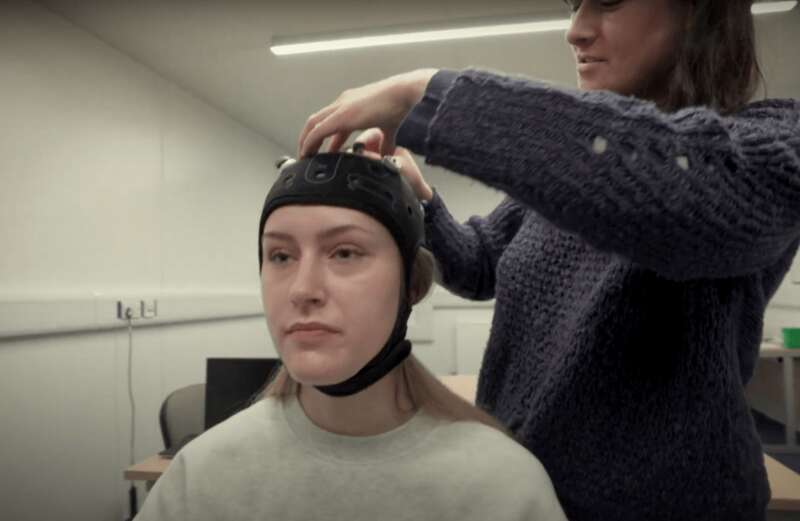A BRAIN-SCANNING helmet could diagnose dementia earlier and faster than current tests, say researchers.
The three-minute ‘Fastball’ test tracks electrical activity in the skull to see how the mind reacts to a series of flashing images.

Its inventors, from the universities of Bristol and Bath, say it can detect subtle changes to brain waves during the very early stages of dementia.
A £1.5million funding boost from the government will allow it to be tested on 1,000 patients in Bristol to find out if it can be used for mass screening.
The team say it can be done almost anywhere and requires almost no effort, compared to current quizzes and memory tasks.
 Breakthrough in dementia battle as HRT could 'slash risk of developing disease'
Breakthrough in dementia battle as HRT could 'slash risk of developing disease'
They hope it could slash five years off the average age of diagnosis.
Around 850,000 people in the UK have dementia and it is our number one killer, with cases rising every year.
Dr Liz Coulthard, from the University of Bristol, said: “Patients can wait a long time for diagnosis and some of our current tests can be inaccurate and stressful for them.
“A quick, easy-to-administer memory test, like Fastball, could transform that.”
Current assessments often involve interviewing patients and asking them to complete tests which they might struggle to understand or feel nervous about, affecting their results.
Pressure on the NHS also means that it can be time-consuming to get a diagnosis as someone may need multiple appointments.
The quick and portable Fastball test could tackle these problems, the researchers hope.
Dr George Stothart, from the University of Bath, said: “Nearly all of us will know someone with dementia.
"The cost to families, and to the NHS is enormous and is set to rise as our population ages.
"But dementia is currently diagnosed too late – typically up to 20 years after the disease has first begun.
 Warning as obesity could trigger same symptoms of Alzheimer's disease
Warning as obesity could trigger same symptoms of Alzheimer's disease
“Quicker, more accurate ways to diagnose it are greatly needed.”
Recent studies showing that it may be possible to treat Alzheimer's disease also mean it is important to improve early diagnosis, so people can get treatment when it will be most effective.
The drug lecanemab was last week approved in the USA for patients with early-stage Alzheimer's.
It is the first medicine that has shown to modestly slow cognitive decline.
An 1,800-patient study found the drug slowed memory and thinking decline by 27 per cent over 18 months.
Hilary Evans, chief executive at Alzheimer’s Research UK, said: "With a UK decision on the horizon, the news underlines the urgency of getting the NHS ready for new medicines like lecanemab."



































